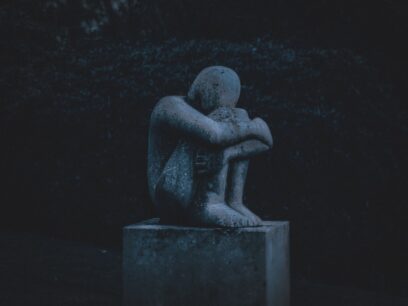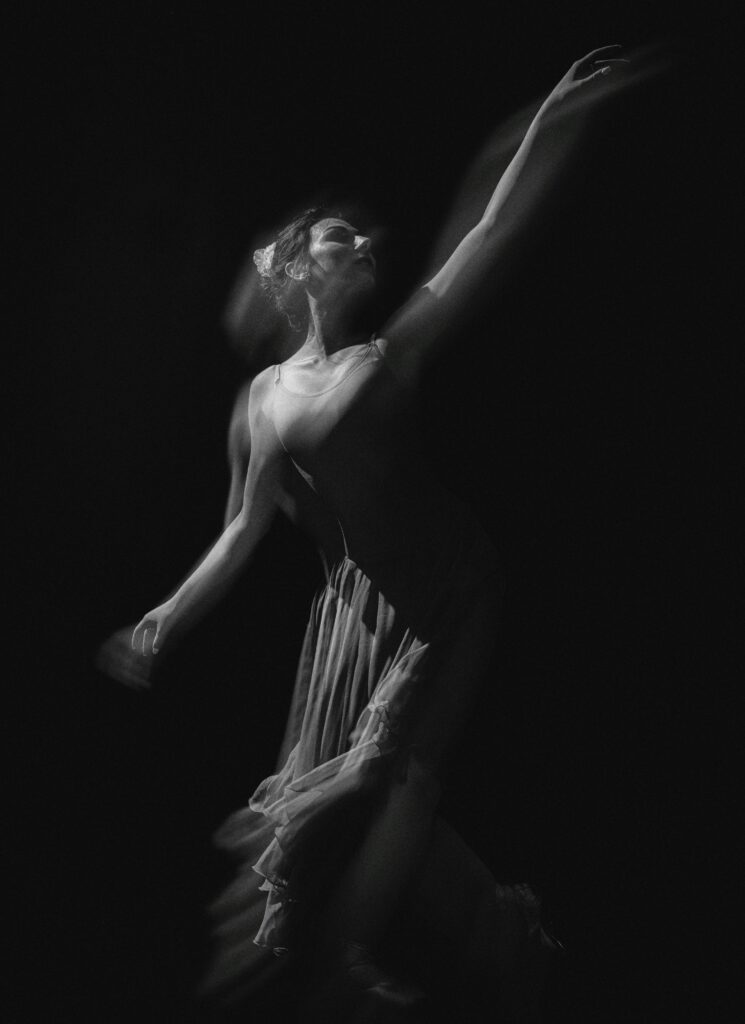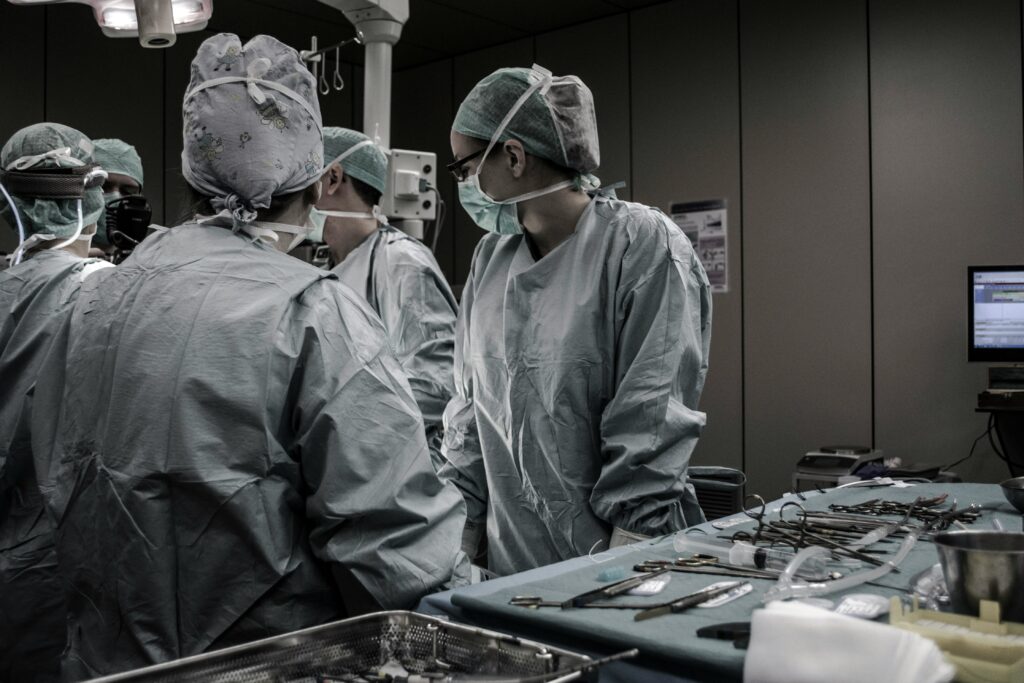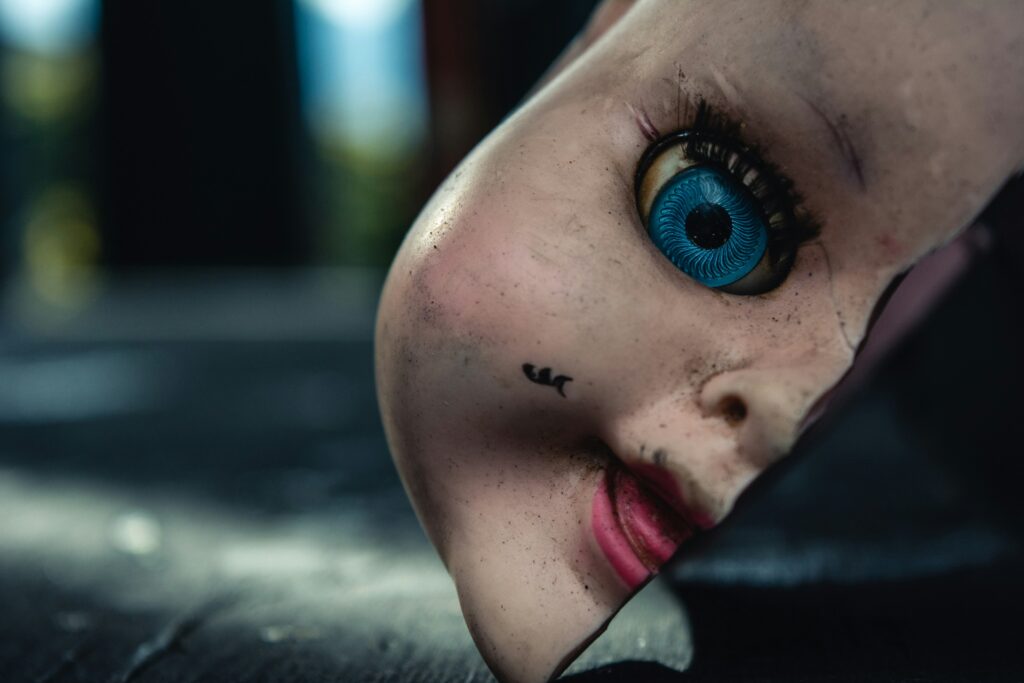There’s really no need
Maggie Iribarne, December 16, 2023
There’s this feeling like we’re leaving Earth for a place far away, and literature feels like looking back through the window of the spaceship, waving goodbye.(Elle Magazine)
I stumbled onto the street and there she was, darkened but decipherable through my UV400s : a bun-headed woman wearing some super weird clothes standing on the sidewalk. The violent sun, white and hot streaking from the east, pressed its nasty fingers into my leathery skin. The street was, as usual, empty. I’d gotten used to that, but this anachronism lady brought out the loneliness of it all. That day it was me and her, but it was usually just me. A while back, I found I could walk out here before anyone checked their cameras. People like me were supposed to stay in their place, but I found my morning walks to be worth the risk. I needed to shake myself out, sort of like pacing. There was so much time in those aimless days.
The woman’s jacket had like fifty buttons, a railroad track trailing up to her throat. I mean, she was wearing decent, like full leather shoes on top of pantyhose. I haven’t seen pantyhose since the early 1960s. My granny wore panty hose.
Her presence heightened my disheveled look and not-so-fresh fragrance. Without one whiff I knew she smelled of old scents, soap or moth balls or both. So, I smoothed back my hair and hiked my shorts from their usual half-ass state.
The shock of seeing an old lady with a buttoned coat, bunned hair, skirt (I forgot to mention that), panty hose, and shined leather shoes diminished compared to the shock of her voice, directed at me.
“Young man,” she said, “Can you help me hail a cab?”
“A cab?”
“I have a reading to attend at the public library at 1 PM sharp and I need a cab. I’d like to arrive early.”
She spoke with – what would you call it – like every word was a little jewel rolling around in her mouth or something.
I hadn’t been spoken to by real live person in about six months, since my sister Ruby came looking for me, found me, and then promptly returned to her cool tower.
“I just wanted to make sure you were alive. I couldn’t find your phone anymore.”
“I don’t have a phone.”
I gave up the whole phone (the irony of that old fashioned name for those things!) some time ago, mostly because I couldn’t afford one but also because I didn’t give two craps anymore. They used to call it off the grid. That’s me, off the grid.
“You don’t do anything anyone else does,” Ruby said, right before rushing off.
She didn’t invite me to come with her. And I would have in a heartbeat.
Anyhow. Digression.
I still couldn’t get over the amount of clothing the bun lady wore. I mean this was like some broadloom woolen shit. This was not the high-functioning fabrics people, rich people, wore these days. I assumed she was rich. I wore old clothes, my father’s clothes, threadbare denim, cotton. I nervously ran my fingers through my lucky charms inside my jeans pocket, feeling for the smooth soothe of my guitar pic.
“I think I shall walk. Would you escort me, sir?” she said.
Escort? To a reading? What the hell did she mean by that? Why would she need to go somewhere to read? Who would she be reading to? Sir?
“I. I. Guess,” was all I could manage.
“Excellent. What a fine young man you are,” she said.
Fine young man. I looked at my filthy flip-flops, my horny toenails. I’d let my greying beard grow long, hiding the wrinkled remnants of my face. My mouth tasted foul. I was not a young man. I wasn’t even sure I was a man, a hu-man. I was some kind of messed up Rip Van Winkle, denied the privilege of a long, peaceful slumber.
Then, get this, she tucked her hand into my arm. She touched me. I nearly sunk to the concrete.
“It’s a good day to go to the library, nice and cool in there,” I said. The library was one of the few places people still went.
“Shall we?” she said.
“We shall.”
***
We followed the trail of empty streets. Most people didn’t come outside at all. If they did it would be to dart in and out of an air-conditioned building or car, mice zipping through their maze. I didn’t have that luxury.
“What a lovely day,” she said. “My! The streets are spic and span! Such an improvement!”
She was right. There wasn’t much garbage around since the microbes started eating all the plastics. This was lauded as a great feat of modern times, but I don’t know. You can’t get a feel for a place without the garbage.
We crossed the treeless Tatbury square. Jesus, just this one little old lady and I was back in the past. I’d shut that door, permanently, a long time ago. Goes to show ya. Never safe. Not ever. Memory – the super stealth intruder. The square used to be green and bushy and full of people. There were concerts here every summer. Summer.
“What else do you do? Besides, going to the library for readings?” I asked, mainly to stop myself from thinking.
“I’m Maude Mason,” she said.
“Yeah?”
“Perhaps you don’t read poetry. I’m a poet.”
“You do that for, like, a job?” I said.
She chuckled, clenched my arm a little tighter, a blood pressure cuff with fingers. The abandoned blocks passed. A siren wailed in the distance.
“I was also an editor of Skyline,” she said.
“Skyline?”
“Oh dear me, I forget sometimes that not everyone lives in my little bubble. My apologies. It’s a literary magazine.”
“Oh. Jeez. I don’t even. A magazine?“
“Ah, we’re here!” she said, and we were, standing before the stone lions of the main library, one of the few old things left. My hand was sweating so much I feared staining her strangely spotless jacket. Another memory assaulted: these library steps crowded with people drinking coffee in the sun, socializing. I ate a hot dog there once when I was hungover after a Dead Show and then hurled in the bushes over on the side. A sadness crept in, weighed down, a heavy blanket.
“Lovely,” Maude said, detaching herself from me and darting up the stairs at a remarkable speed for someone so old and overdressed. Wiry little thing. I hadn’t noticed until now she carried something flat which waved in the air as she bolted toward the front door. She looked like a one-winged bird. Was that paper? Of course it was, of course this lady would be carrying paper. Birds, paper, I didn’t like to think of such things.
Feeling a tad self-conscious about my obviously tent-city look and smell, I rehitched my pants, looked around, and followed.
Things inside were as I expected, everyone sitting alone in their capsules wearing VR glasses and ear pods, laptops and handhelds glaring as they typed or nodded or talked or listened. A little waitron rolled around offering coffee and snack chews. It was like that bar scene in the original Star Wars movie, only scarier.
Maude held her wrist to her face, glanced at an old-timey watch. My granny had the same one. A plain white face with numbers and two hands that turned. What was that called? A second hand. I shuddered, thinking of all the seconds needed to get through a day.
“You’ve been so kind, um, I’m sorry, I didn’t even ask your name! So rude of me!” she said.
“Ah, no worries. I’m Jude. Jude Larson. Not a poet,” I said.
“We’re all poets, Jude. Let me buy you a coffee. Is there still that nice little café here? In the basement?”
I retucked and steered her to the staircase. We walked down the marble steps and into the lower level. People sat here and there, ensconced in their other section of capsules.
“I remember it being to the right,” she said. Our footsteps echoed in the wide space, which was really a hallway. I imagined this would be what death was like, escorted by some wise person through cool ribbons of shadow.
We arrived to the café where we stood at the counter and a waitron took our order.
“How funny!” Maude said, “ Jude, what would you like?”
I ordered a cappuccino chocolate chew, knowing a free meal doesn’t come round too often.
She ordered an earl grey tea. I added the word chew and the waitron buzzed away.
At this point, I wasn’t surprised when she pulled the soft bills from her leather wallet, which the waitron scanned, releasing change through a side slot, causing a jarring clank that echoed through the quiet space. I was slightly surprised her old money was accepted. Well, they’d thought of everything, those powers that be. I really wasn’t surprised. Surprise was an emotion of the past, most days.
“How funny,” Maude said again.
Hilarious.
We found a seat amongst all the cell-heads. No one noticed us actually having a conversation. For a minute I fantasized everyone would drop back into real life, look at us, the only two people in the whole place facing each other, talking, and say, I want what they’re having, but that wasn’t the case.
I asked, so Maude told me about her poetry. She wrote about nature – fish and seashells, and the ocean.
I thought I was going to choke. Nature was damn harsh, scary. I forgot it had once been beautiful.
“What do you do?” she asked, examining the chew as though she was a scientist holding an insect between tweezers. The question I dreaded.
“I’m. Well. Not. Hey. I’m a cab driver,” I lied.
“You are? How fascinating? Is your car in the shop?”
“Yes,” I said, chewing the chocolatey yumminess. I didn’t know how they got all that flavor and calories and nutrition, even a full feeling, in just one little bite.
“How long have you lived here in the city, Maude?”
“Oh forever. My entire life. I’ll live here forever.”
“Huh. That’s a long time. Did you have a family?”
“A father and mother, of course. A brother. They all passed. Now I’m on my own.”
“No sperm donors?”
“What?” she wriggled in her seat indicating full body discomfort.
“Kids? No kids?” I clarified.
“No, no. I’m a working lady.”
“A poet.”
“A poet.”
“So what else do you do besides the taxi driving? You must have a family? A pet? A passion?” she asked.
“Ah, I’m pretty busy walking poets to readings at libraries,” I said.
With that she tilted her head back a little and laughed, reattached to my arm. I pictured her as a young woman. A grey hair sprung from her bun.
“I supposed I oughta get-“
“Won’t you stay for the reading?” she asked.
I looked into her small grey eyes. Her pupils seemed to pulse, like she was trying very hard to look determined but her body was resisting.
“I best get going. Break a leg,” I said, knowing that was something people used to say. My own father said it to Ruby once when she was going to be in the school play.
The truth was, I couldn’t bear much more of this talking and touching and remembering. My legs were actually shaking. I also couldn’t bear to watch this poor lady give her reading to no one, a teacher stationed before sleeping students. I think she might have been out of her mind. She needed some kind of medication. That’s what it was.
***
You might have guessed, I stayed, positioned myself behind a pole and watched her as she stood in front of the room of bent heads, looking a little lost. Then she tugged with her right hand on her buttony jacket, pushed a stray hair back into her bun, and threw her shoulders back. She opened her folder and read.
The room had a peaceful, glowing coolness, a greenish, underwater feeling, that I have to say almost lulled me to sleep. In fact, many people were sleeping. Tent city people like me (but with devices) scrubbed up to get in places like this to have a decent, chilly rest. Her voice came small and quivering, growing louder and more confident as she spoke.
“Welcome,” she said. “I’m so happy to have the unerring support of the public library system. I am pleased that we’ve received such a buoyant turnout.”
Buoyant. Who talked like that?
Anyway, the first poem was about a seashell, and another about a cat curled up in a ray of sun, then about autumn leaves. When she read about a rainstorm, I broke. The way she said the word cracked, referring to lightning killed me. I hadn’t thought of a storm, a real storm, with all the noises and the wind and the flashing light, in so long. I shifted from leg to leg. I thought I might lose my shit. Literally.
Her mouth sounded dry. I wanted to bring her a cup of water but that wasn’t done anymore. With the urine-x recyclers thirst wasn’t a thing anymore. I’d actually forgotten about thirst.
Her words were lush, mouthwatering. Her poems were useless, so beautiful, like those stone lines we’d passed on our way in. I had forgotten what it was like to enjoy something useless and beautiful.
She closed her folder and gazed at the crowd of people who had not listened to one word she said.
I clapped. She heard, saw me. Her expression shifted from a confused, almost frightened look to a full smile.
“That was so good, Maude, amazing,” I said, approaching her.
“Thank you, Jude. I wasn’t sure at first. I-”
I couldn’t listen to her acknowledge the scene around us. I wasn’t sure she would.
“Can I escort you home?” I inserted my hand in the now familiar crook of her arm.
“Certainly,” she said, and we walked out the doors into the relentless midday heat.
***
We followed the streets back to the spot where I found her. She pointed at a bear of a brownstone behind us. It was huge. I’d never noticed it before.
“Well, this is mine.”
“Really? All of it? You live there? I didn’t think anybody-”
The still-standing old style building amazed me.
“How do you keep cool in there?”
“Oh, it’s quite nice in my house. Would you like to come in?”
“No, I’m so dirty. I wouldn’t want to-”
“Nonsense, come in, Jude. I’d love to have the company.”
Inside it was like a dream, like the books my mother read me fifty years ago. It was cool and dark, like a cave, a really nice cave. There was a grandfather clock chiming in the hall, an umbrella stand (umbrellas!) in the corner, a dark sitting room with purple velvet covered furniture. There was a kitchen in the back with a sink, a refrigerator, a stove. There were two bathrooms, one she called a powder room, like my granny used to. And it was cool, so cool, but a natural, non-fake coolness. The bowl of apples on the table, gleaming like waxy globes, made me tremble. I wanted so badly to reach out and touch one, take it, bite in. Would it be crunchy and sweet, as I remembered?
“Maude, where do you, how do you?” I said to distract myself.
“Come upstairs to my office. Let’s sit and have a good chat. I’ll bring real cups of tea this time. Honestly, how can the library serve such disappointing fare?”
She turned to lift the kettle to the faucet. The rush of abundant water, the tick tick tick of gas igniting the flame gave me an inordinate thrill. I started to cry. I know, a grown ass man crying. I hadn’t known how deadened my senses had grown over all these years, suffering on planet Earth. How had Maude managed to live in this pocket of the past, a past I forced myself to forget? I never wanted to leave.
I pulled myself together, followed as she carried a tray upstairs. A cat passed us on the long carpeted stairwell.
That’s another thing that no longer existed. Pets. No one had the wherewithal to care for small animals anymore. Most of them died out with the heat. Every once in a while I’d see a stray dog in Tent City, but that was rare.
I ran my hand along the orange cat’s back. Smooth as silk. My fingers tingled.
“That’s my Gus.”
We entered her office. She pointed me to a big cushioned chair and handed me the mug of tea. I tasted it too quickly and burned my tongue. I wasn’t used to eating or drinking liquid, especially hot liquid. I wondered if my body would go into some kind of shock and I’d croak right there. Dying here, with her, that’d be just fine.
She pointed out all the items in her office, gifts from writer friends: a foot stool from Cummings, a painting from Eliot, a letter from Pound, a ceramic cow from O’Keefe.
I didn’t really know these people, though their names tugged on some threads of memory.
“Were they your friends?”
“Yes, they’re still my friends.”
“They come here? To see you?”
“Certainly.” She pointed at all the bookshelves and smiled.
The books. Hundreds of them. My whole soul ached to touch them, open them.
I was pretty sure Maude was nuts, but if this was nuts, I’d prefer it to sane.
“So tell me your story,” she said, fixing her grey-eyed gaze. She’d unbuttoned and removed her coat, revealing a short-sleeved cotton blouse tucked into her skirt. She’d slipped off her shoes and crossed her stockinged feet, stretching her legs out girlishly.
“Not much to tell. I was born here, seems like longer than sixty years. Back before the heat, the changes. Uh. My father drove a yellow cab, but that dried up. Mom died young. With all the medical advancements they screwed up and she died of something stupid. Negligence. Anyway, my Dad died later. My sister was real smart, she got herself an intelligence job and moved. I’ve been alone here for a while.”
“But do you have a passion?”
“I did.”
I savored and swallowed the silence. I wouldn’t, couldn’t, say, even think, the word I forbade myself.
She stared at me expectantly.
“I was a musician. I played the guitar. That was my job. People came to bars to listen. It was-” The words plodded, my mouth thick.
My life was about getting through the days. I lived quietly, out of the way, causing no trouble. That’s how we all survived, those of us who couldn’t afford anything else. The poor must remain in their place. That’s one of the tenants of the new constitution.
“Oh, wonderful,” she said, setting down her mug and standing. She left the room and came back holding a guitar.
“This was a gift to me from the Basque guitarist Jose Friedman,” she said, holding the instrument by its neck, offering it to me.
I was totally shocked by the sight of its smooth wooden body, then repelled, like she was handing me a dead body or something. I hung my head.
“No. No,” I stood up, sat down.
“Play,” she said, “Play.”
***
I didn’t play. I ran, trampling down the stairs and out of the house,
“Come back, play whenever you’d like. I will always be here,” she called after me.
During the following nights, I tossed and turned on my cot more than usual. All the tunes learned as a child, long repressed, a stuffed suitcase forced shut, what they used to call classics, popped into my head. It felt like pain, a pleasurable pain. How I remember sex, when people used to do such things.
I’d never noticed Maude’s house before, but now it towered in my mind, my sight.
I always rose early to pass the first few hours of the day without notice. The boredom of planet Earth these days, someone in my station of life, was what bothered me the most.
I’d trained myself to turn my mind into a blank space. A white spot, blurry and fuzzy, the way a television would look when it was “on the fritz” as we used to say.
One tune wouldn’t leave my head.
“Strawberry fields forever,” the Beatles, played on repeat until I had no choice.
I walked to Maude’s house, stepped into its cool shadows. Before leaving tent city, I’d removed everything in my pockets except my pic. Its presence burned into my leg as I climbed the stairs.
She remained where I left her, in the room she called her office, except this time she was hunched over her desk, writing, writing, pen in hand, paper.
“Jude!” she smiled a wide smile and stood. She hugged me. I didn’t resist, relaxed in her embrace.
“I’ve got this song. A band called The Beatles. ‘Strawberry Fields’.”
“Well, I love strawberries. I’ll go get some! I don’t love beetles though!”
She handed me the guitar and swept out of the room.
I plucked out the tune with a shaking hand, each note growing in strength and purpose. I couldn’t stop crying. It was embarrassing, wonderful.
She placed a white dish filled with strawberries beside my chair.
She sat across from me, biting the berries from the stem, dabbing at the juice on her chin with a white cloth napkin, her legs crossed, her foot bobbing to the music.
“There’s really no need,” she said, “to leave here, to do anything else but this,” she said.
“Isn’t there?” I said, my left hand solid on the neck of the guitar, my right fingers holding my long-unused pick.
I wondered, but I knew she had to be right.
You may also like
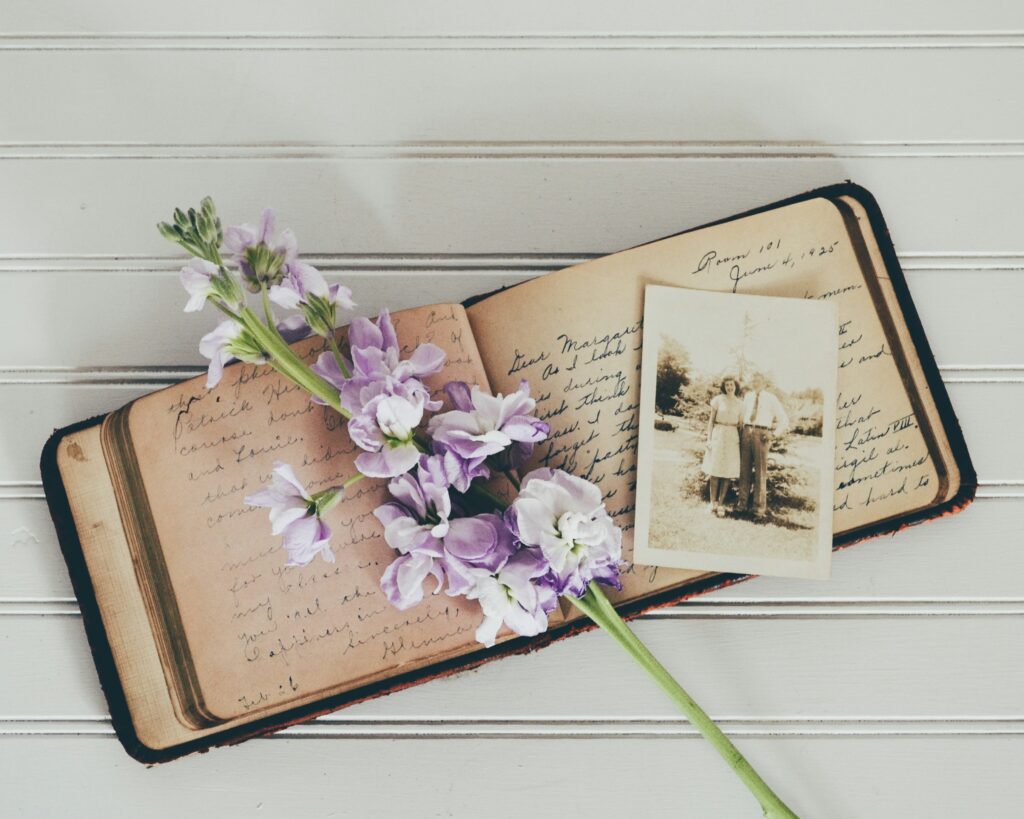
Eyes of the Beholden
Unspoken desires linger in the shadows of a teacher's life, revealed through art
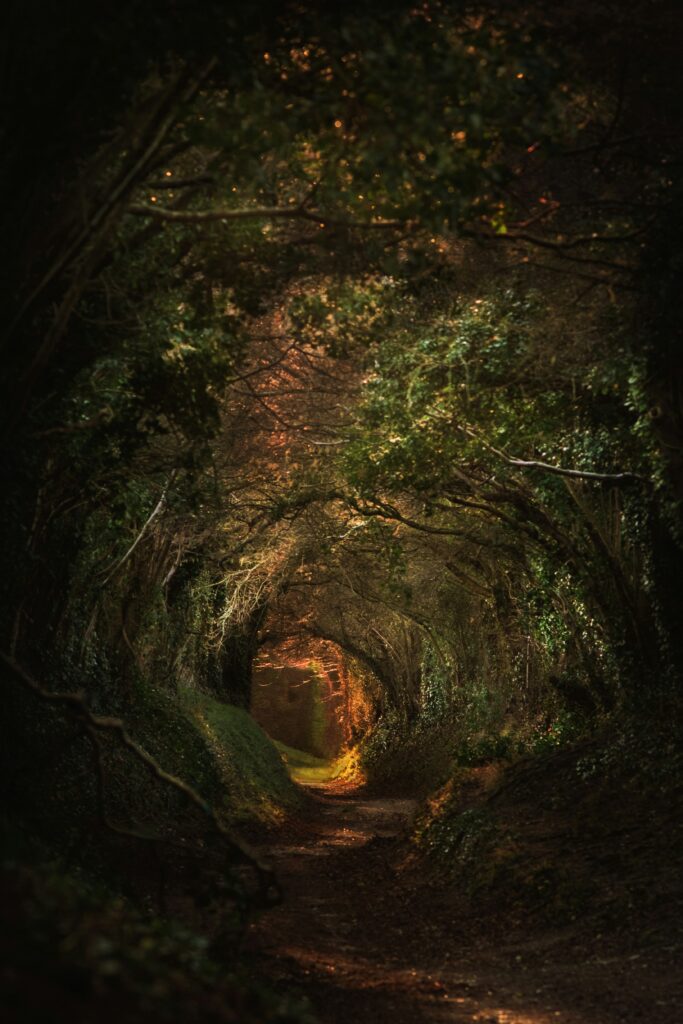
LOST
Bessie's odyssey through stormy nights, lost love, and secret graveyards unfolds with haunting beauty in "Lost" by Sandra Dennis.
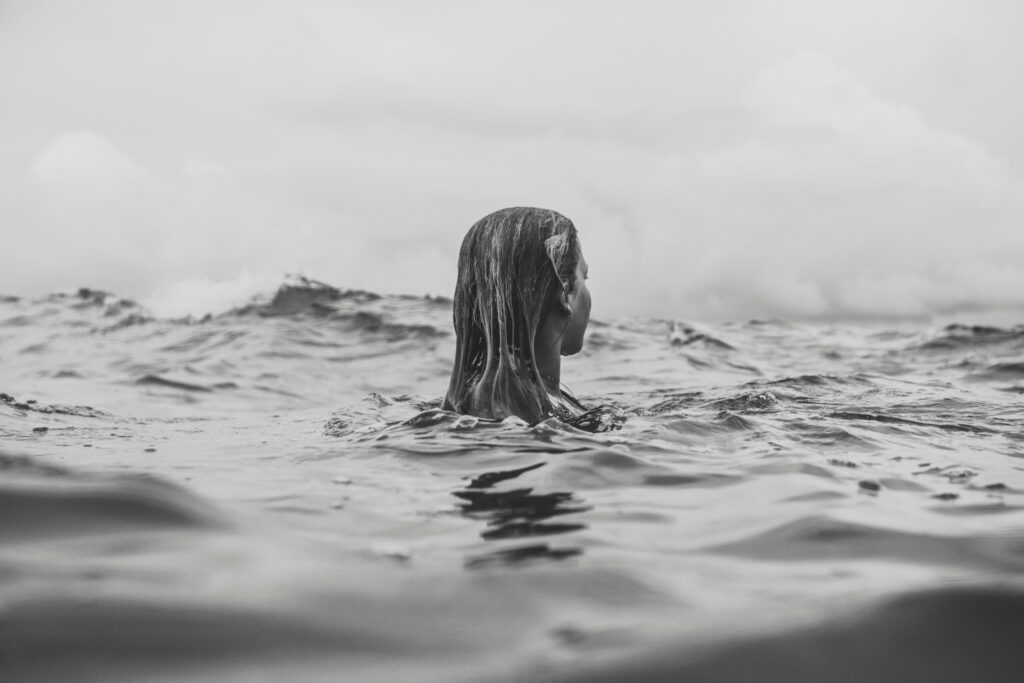
Water Rising
Amidst a flood, a woman grapples with the past, and confronts the consequences in this haunting narrative of resilience.
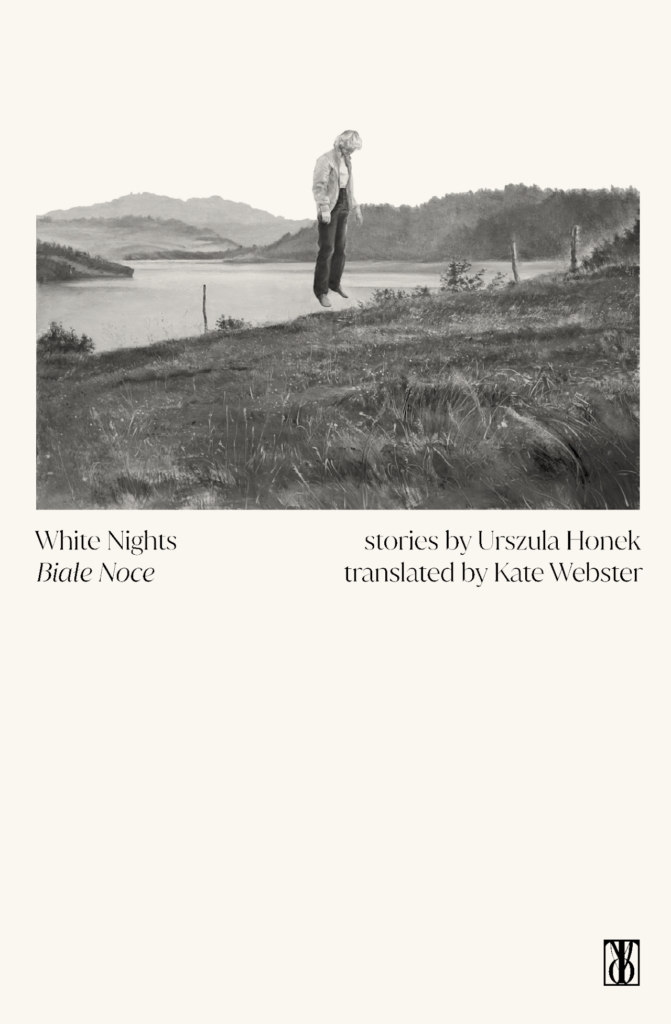
Book Review: White Nights by Urszula Honek
The debut short story from Polish writer Urszula Honek, White Nights, is akin to reading an account of a haunted place – one that is beautiful and devastating in equal
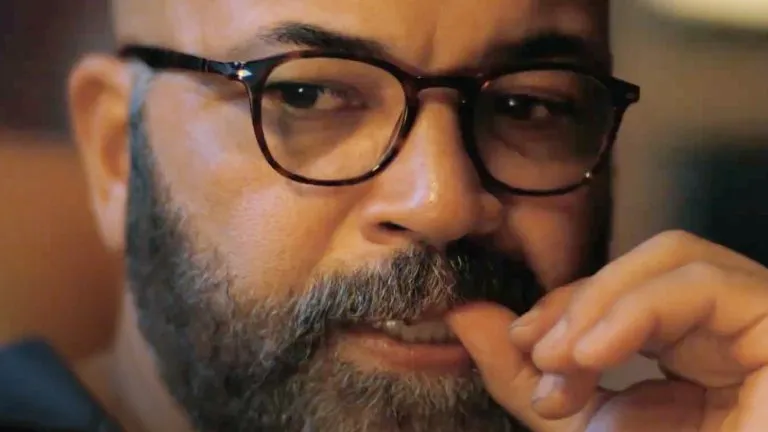
Beyond the Surface: The Multifaceted Lives of ‘American Fiction’
In essence, "American Fiction" and the experiences it draws from remind us that we are indeed more than the sum of our parts.
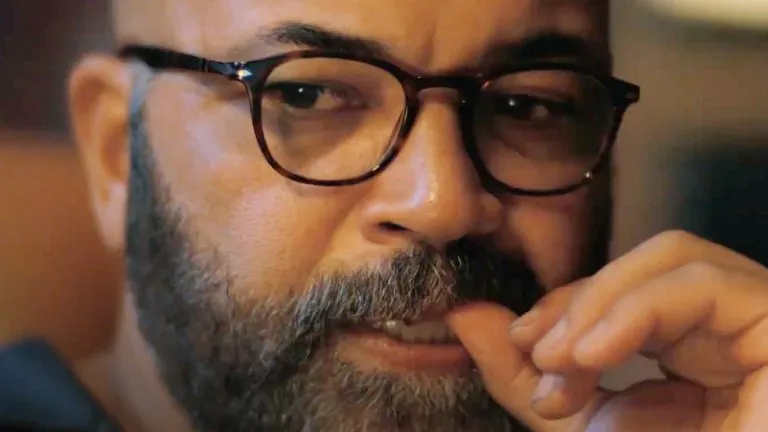
Beyond the Surface: The Multifaceted Lives of ‘American Fiction’
The narrative of “American Fiction” unfolds with a dual focus: it not only scrutinizes the unique pressures faced by Black creatives but also delves into the intricate and sometimes tense…
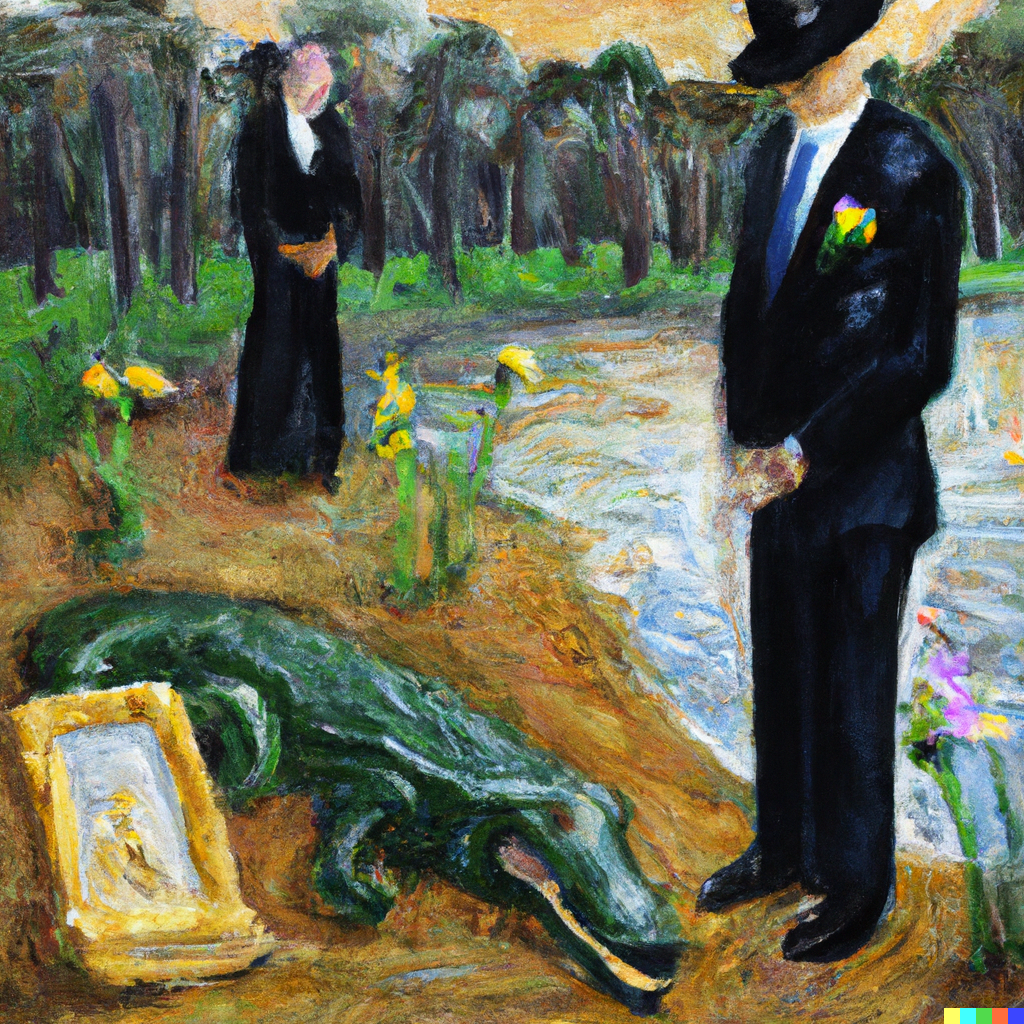
Uncle Bobby’s Funeral
Reluctant family faces the eccentricities of Uncle Bobby's funeral in swampy Chipley.




